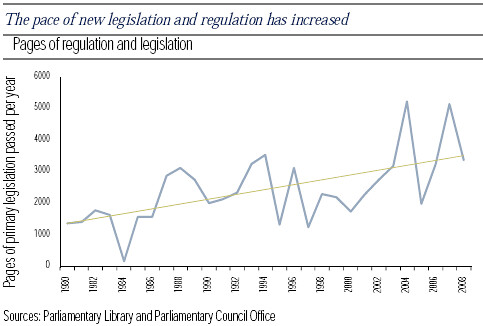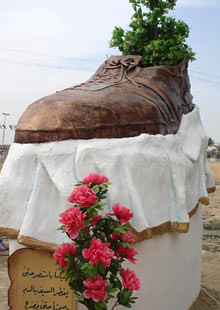Bill English has released the second part of Treasury's Briefing to the Incoming Minister [PDF] - the part focusing on the specifics of National's policies. He's released it on a Friday - the traditional time to bury bad news - and I can see why. There's a lot in here people should be interested in, either because it calls the government's programme into question, or because it raises significant questions about what exactly they plan to do. And our politicians and journalists should be asking those questions now.
On the first front, Treasury is surprisingly in favour of Labour's R&D tax credits and "Fast Forward" fund, both of which it sees as making a positive contribution to innovation (National has scrapped both to pay for its tax cuts to the rich - something which promotes only holidays in Hawaii for the few). They oppose National's changes to KiwiSaver on the grounds that there is no evidence that the 4% payments are a barrier to access, while reducing them could lead to inadequate retirement savings and lead to people's balances simply being eaten up by fees. And they oppose National's plans to "fund" infrastructure by having the Cullen Fund purchase government-issued infrastructure bonds is simply a financial merry-go round in which the government would be both the issuer and holder of debt. In other words, it is a way of effectively reducing contributions while disguising the fact that they are doing so - a pure PR scam. Treasury frowns on such Enron-style accounting, and the rest of us should too.
On the second front, Treasury continues in the vein of its triennial ideological burp, recommending more market fundamentalism in response to the economic crisis. So we have the usual calls for tax cuts for the rich, poorer working conditions for the rest of us, and no increase in the minimum wage. Then they get worse.
They recommend "fiscal consolidation" (spending cuts), to be achieved by setting a GDP target for government spending or revenue, "a commitment not to change the allocation once set during the Budget cycle", or just slashing departmental budgets and leaving chief executives to sort out the mess. At the least, they recommend the return of the "sinking cap" which caused so much damage to our public services under the last National-led administration in the 90's.
They recommend higher student loan repayment rates for those on higher incomes - a shockingly progressive move, but one which would effectively claw back National's tax cuts for (recent) university graduates. Then they suggest lowering the repayment threshold. It's already well below the full-time minimum wage - a situation which makes a mockery of the claim that it is repaying the private benefit of education - and they want it lower? This is simply madness.
In places, the advice is almost comical. They recommend against "opening the books on waiting lists" because this could create "unrealistic expectations" that the health system would be properly funded to deal with basic demand, and create a risk that "ministers could become responsible for fixing every vulnerable service or unmet need" (hint to Treasury: they already are, and we punish governments who evade that responsibility). And in response to National's plans for a "crime tax", they suggest replacing it with "targeted support for the 13% of victims (particularly victims of serious violent crime) currently reporting dissatisfaction with the support they receive". I believe that's what Treasury would call "creating an incentive"...
But the worst bit is their proposed response to the international financial crisis. Their proposal? Nothing. Treasury thinks the market is best left to sort itself out. A fiscal stimulus package could upset the markets and "work against the unwinding of imbalances in the economy that need to happen". In English, that means stop firms from going bankrupt and people being thrown out of work. Furthermore, the effects are not predicted to be that bad - we're only expected to see 6% unemployment, "which until this decade was seen as the lowest rate of unemployment before inflationary pressures emerged". I'd like to see them tell that to the 75,000 families they're saying we should do nothing for. Assuming they can see them from their corner office fifteen floors up on the Terrace, that is.
It's appalling advice, both in its laissez faire attitude (the financial crisis apparently not having done anything to Treasury's religious belief in rampant capitalism) and its sheer inhumanity. And it makes me wonder: if Treasury's advice on any significant issue is inevitably "do nothing; let the market sort itself out (oh, and give tax cuts to the rich)", couldn't we get that advice a lot cheaper? Currently, we pay them about $40 million a year for policy advice. Couldn't we save all that money and spend $10 (once!) for a "Treasury says..." sign on the Minister's wall?
Humour aside, we should be asking the government how much, if any, of Treasury's recommendations they plan to implement. They publicly rejected the other proposals in the BIM, and we should make sure they do the same here as well.


